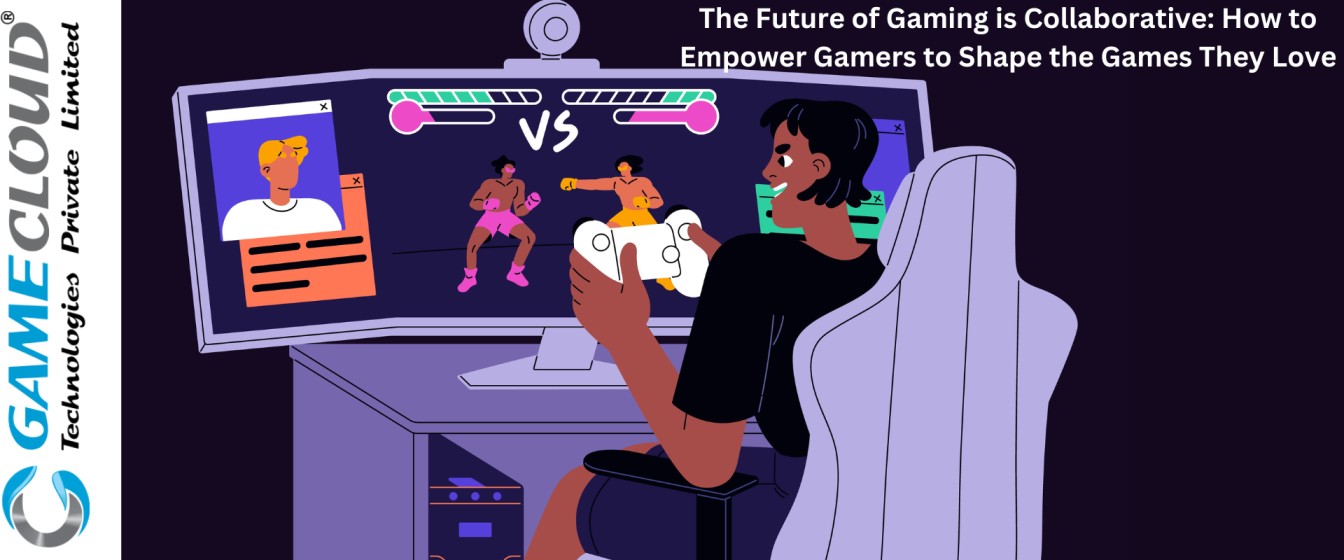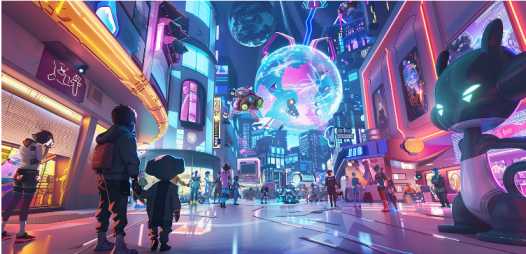
The future of gaming is not just about playing; it’s about collaboration and empowerment. In an era where the gaming industry is rapidly evolving, collaboration and interoperability are becoming key drivers of change. Game developers are embracing a new paradigm where sharing assets, code, and ideas is not just encouraged but essential for the industry’s growth and sustainability.
Recent partnerships between major players like The Walt Disney Company and Epic Games signal a significant shift towards a more interconnected gaming ecosystem. This collaboration aims to create an all-new games and entertainment universe that merges iconic IP from Disney with the innovative gaming platform of Epic Games. Such partnerships not only expand the reach of established brands into the gaming space but also pave the way for new experiences that blur the lines between traditional entertainment mediums and interactive digital worlds.
Moreover, as companies like Disney venture further into gaming, it highlights a broader trend where gaming is no longer limited to a niche audience but has become a mainstream form of entertainment with a global reach. With an estimated 3 billion gamers worldwide, the gaming industry’s economic significance surpasses that of the music and movie industries combined. This shift in focus towards gaming is evident as more companies, including streaming giants like Netflix, recognise the potential of this thriving industry.

The emergence of the metaverse as a central concept in gaming further underscores the collaborative nature of future gaming experiences. Gaming executives acknowledge that the metaverse represents a new frontier for immersive digital experiences, offering opportunities for innovative business models and closer interactions between brands and consumers. Through technologies like NFTs and smart contracts, gamers are empowered to truly own their digital assets, participate in play-to-earn models, and engage in virtual economies that transcend traditional boundaries.
In this evolving landscape, empowering gamers to shape the games they love is paramount. By fostering a culture of collaboration, inclusivity, and co-creation, the future of gaming holds immense potential for engaging experiences that transcend mere entertainment. As companies continue to invest in virtual worlds, augmented reality, and interactive storytelling, gamers are poised to play an active role in shaping the future of this dynamic industry.
How can gamers collaborate and give feedback to developers, to shape the games they love?
Gamers can collaborate to shape the games they love by actively engaging in various aspects of game development and community interaction. Here are some key ways gamers can collaborate to influence the games they are passionate about:
- Providing Feedback and Suggestions: Gamers can collaborate by offering constructive feedback, suggestions, and ideas to game developers. This direct communication channel allows developers to understand player preferences and make informed decisions to enhance the gaming experience.
- Participating in Beta Testing: Gamers can collaborate with developers by participating in beta testing phases. By providing valuable insights during testing, gamers can help identify bugs, suggest improvements, and contribute to the overall quality of the game before its official release.
- Engaging in Community Forums and Discussions: Gamers can collaborate by actively participating in community forums, discussions, and social media platforms related to the game. By sharing opinions, engaging in debates, and expressing preferences, gamers can influence game development decisions and foster a sense of community involvement.
- Creating User-Generated Content: Gamers can collaborate by creating user-generated content such as mods, custom levels, or in-game creations. This content not only adds value to the game but also showcases the creativity and preferences of the gaming community, potentially influencing future game updates or expansions.
- Supporting Crowdsourcing Initiatives: Gamers can collaborate through crowdsourcing initiatives where developers seek input or funding from the community for specific game features, projects, or events. By participating in these initiatives, gamers can directly impact the direction and development of the game they love.
Gamers can provide feedback to game developers through various channels and methods, each offering unique opportunities for communication and collaboration. One common way is through direct communication platforms like in-game feedback forms or surveys. These tools allow gamers to share their thoughts, suggestions, and criticisms directly with developers, providing valuable insights into the player experience and gameplay mechanics. By offering detailed feedback on aspects like game mechanics, difficulty levels, user interface, and overall enjoyment, gamers can help developers understand what works well and what needs improvement.
Another effective method for gamers to provide feedback is by participating in beta testing phases. Beta testing involves playing a game before its official release and providing feedback on different aspects of the gameplay experience. This direct interaction allows gamers to identify bugs, suggest enhancements, and contribute to the overall quality of the game. By actively engaging in beta testing programs, gamers play a crucial role in shaping the final version of the game by highlighting areas that require attention or refinement.
Community forums also serve as a valuable platform for gamers to share their feedback with developers and fellow players. Forums provide a space for open discussions, suggestions, and critiques related to the game. By participating in these forums, gamers can express their opinions, engage in debates, and contribute to the collective knowledge base that developers can use to enhance the gaming experience. Additionally, forums help build a sense of community among players and developers, fostering a collaborative environment where feedback is valued and considered.
Moreover, social media platforms like Twitter, Facebook, or Reddit offer avenues for gamers to interact with developers and provide feedback on game updates, features, or ideas. Through these channels, gamers can directly communicate with developers, share their experiences with the game, and offer suggestions for future improvements. Social media engagement not only allows for real-time feedback but also facilitates a more informal and direct line of communication between gamers and developers.
The Future of Gaming: A Statistical Talk

The future of the gaming industry looks promising and dynamic based on the statistics and trends outlined in the sources provided. The gaming industry has experienced significant growth, with the global video game market projected to reach nearly $385 billion in 2023 and expected to approach $522 billion by the end of 2027, growing at an annual rate of 7.89%. This growth is fueled by various factors, including technological advancements, effective marketing strategies, and the increasing popularity of gaming across different demographics.
One key trend shaping the future of gaming is the rise of emerging markets like Latin America, Africa, and the Middle East, which are redefining gaming experiences and creating unique virtual worlds. Additionally, the industry is adapting to regulatory changes and evolving trends, such as the increasing importance of music in gaming and the impact of direct-to-consumer strategies on game distribution. These trends highlight the industry’s global expansion, consolidation, and technological advancements, creating a challenging yet exciting landscape for game developers and players.
Moreover, the integration of artificial intelligence (AI) in game development is revolutionising the industry, accelerating the development process, and enhancing the gaming experience. Generative AI is transforming game development by automating tasks, improving efficiency, and fostering more immersive gaming experiences. This innovation, along with the growing popularity of free-to-play games and the concept of the metaverse, is reshaping the gaming landscape and influencing how players engage with games and gaming platforms.
Overall, the future of gaming is characterised by continued growth, technological innovation, global expansion, and the adoption of new strategies to enhance player engagement and gaming experiences. As the industry evolves, game developers and players alike can expect to see advancements in virtual reality, augmented reality, AI integration, high-fidelity graphics, and the development of immersive gaming environments that cater to diverse audiences and preferences.
Conclusion
The collaborative nature of the future of gaming empowers gamers to actively participate in the evolution of the industry. By embracing this collaborative model, developers can create games that resonate more deeply with players, leading to a more inclusive and dynamic gaming environment. This shift towards player empowerment not only enhances the gaming experience but also paves the way for a more diverse and engaging gaming ecosystem that reflects the preferences and creativity of the gaming community.
